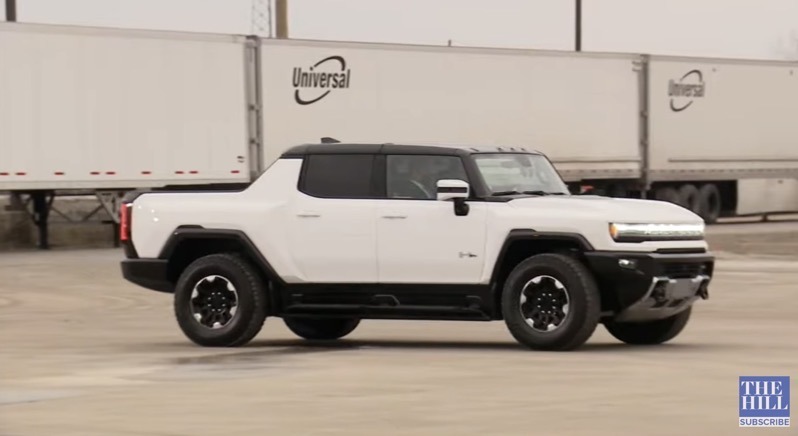
Canada ‘Concerned’ About Biden’s Buy-American EV Tax Credit

Heading into a meeting with U.S. President Joe Biden and Mexican President Andres Manuel Lopez Obrador on Wednesday, Canadian Prime Minister Justin Trudeau said he was “a little bit concerned” about the U.S.’s proposed increase in electric vehicle (EV) tax credits for locally assembled, union-built cars — reports Global News.
“We are a little bit concerned about the zero-emission vehicle mandates or rebates brought forward in the current proposal in Congress right now,” said Trudeau during a Q&A session in Washington, D.C.
“But that’s part of the conversations we’re going to have today to make sure that people understand that doing this together is good for all of us, good for the jobs, good for the future as we fight climate change, as we build prosperity in North America.”
The proposal, which has yet to pass into law, looks to establish a $4,500 USD incentive for union-made vehicles assembled in the U.S., and another $500 USD for locally manufactured batteries, for a total of $5,000 USD in additional rebates for EVs. If passed, electric cars made in the United States starting in 2027 would qualify for an EV tax credit of up to $12,500 USD, up from (up to) $7,500 USD right now.
However, eligibility criteria for the additional tax credit will leave smaller EV makers like Tesla and foreign automakers like Honda Motor Co. and Toyota Motor Corp. at a disadvantage against U.S. counterparts General Motors Co., Fiat Chrysler, and Ford.
The proposed increment could also have another consequence — it threatens to throw off the economic balance and trade agreement between the U.S., Canada, and Mexico.
The North American automotive manufacturing industry is extremely integrated. Parts and components for vehicles can cross Canadian, Mexican, and U.S. borders “as many as eight times” before finally making their way into a production unit in one of those countries, says the Canadian Vehicle Manufacturers’ Association (CVMA).
Speaking to Global News, Canadian American Business Council CEO Maryscott Greenwood said that this kind of protectionist policy is “nothing new.”
“What’s important about this dialogue this week with the three leaders is that they have a real conversation about how economically integrated we are and how our economies can maximize the benefits of our trade agreement,” said Greenwood.
“The truth is jobs in the United States and jobs in Canada are dependent on each other. That’s why any of these dislocations, as the economists call it, are serious.”
According to the CVMA, vehicles make up the second-largest Canadian export by value, accounting for $42.9 billion CAD in 2020. What’s more, 93% of all vehicles exported by Canada are sold in the U.S., so a jump in ‘buy American’ sentiment south of the border could turn into a serious threat to the Canadian auto industry.
Yesterday, Biden visited GM’s newest electric vehicle factory in Detroit, and also test-drove the upcoming Hummer EV, calling it “one hell of a vehicle.”

